The morning sun was still hiding behind thick clouds when I unzipped my tent and stepped into the cool mountain air of Tarishing. A light drizzle hung over the valley, blurring the outlines of the mighty Nanga Parbat — the Killer Mountain — that stood hidden somewhere behind the mist.
We were now in one of the most breathtaking corners of Pakistan — the Rupal Valley, cradled in the embrace of the great Himalayas. The previous night had brought heavy clouds and cold wind, but the morning carried a promise. The weather here was fickle — one moment the sun would burst through, lighting up the emerald slopes, and the next, the mist would swallow everything whole.

I hoped, secretly, that the skies would clear for just a few moments. If only the clouds would drift apart to reveal Nanga Parbat’s ice-covered crown, I could show the world why this place is so close to my heart.
Ali and I had a simple plan — a light breakfast, a short prayer for good weather, and then the long-anticipated ride towards Rupal base camp.
“Bismillah,” I whispered. “May Allah make this a safe and memorable day for us.”
The Road to Rupal
The path to the base camp began just beyond the village. A narrow dirt track carved its way between lush green fields and rocky slopes. “This used to be the old path,” Ali said, pointing towards a steep, crumbling trail snaking up the hill. “But now they’ve built a new one. Much easier.”
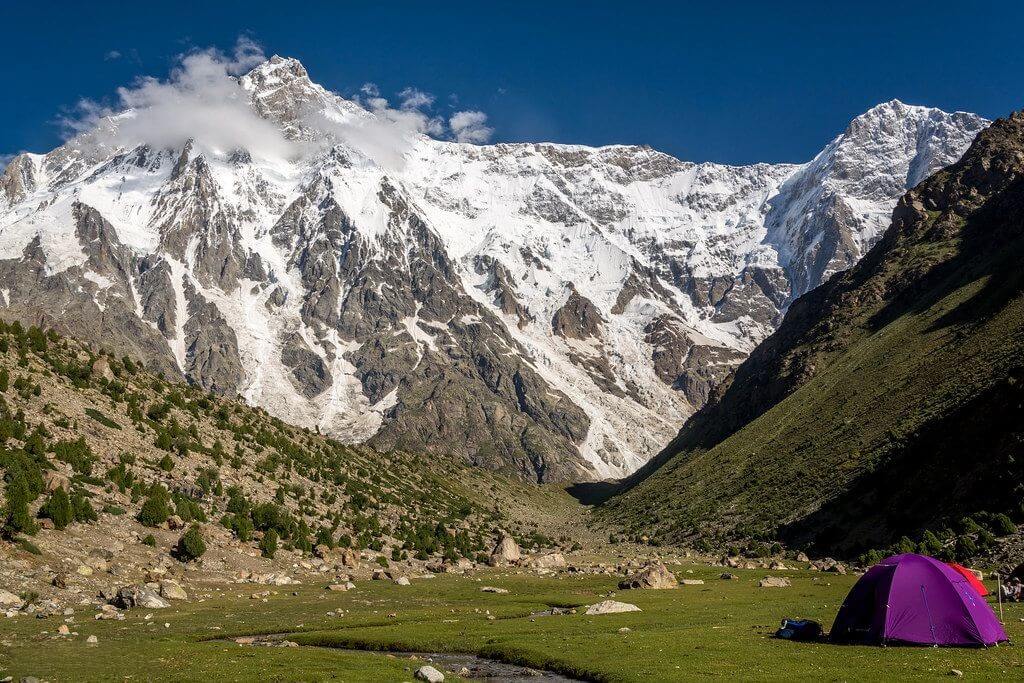
We decided to take the newer path, one that descended towards a small wooden bridge I had spotted the evening before while flying my drone. The valley looked fresh after the rain — the air crisp, the grass shimmering with dew. It was hard to believe that just beyond those gentle green slopes lay the raw, frozen world of glaciers and ice.
The Rupal Valley is unlike any other in the north. Here, civilization seems to stop abruptly, giving way to an untouched wilderness. The air grows thinner, colder. Every sound — the river, the wind, even the occasional bleat of a goat — feels magnified in the vast silence.
As we rode deeper into the valley, the glacier finally came into view — an enormous river of ice, darkened by layers of stone and dust. From a distance, it looked like a mountain of rock, but the glacial blue shimmered faintly beneath its surface. At its base, a river gushed out, milky white, roaring its way down to meet the Indus far below.
“This is the glacier,” I said, my voice filled with awe. “You can actually see the water emerging from its belly.”
It was mesmerizing — the contrast of life and ice, the green meadows pressing up against the frozen walls of a glacier thousands of years old. Few places on earth offer such a meeting of worlds.
Among Mountains and Men
The road wound upward again, its surface turning from gravel to rocks, and soon to nothing more than a trail. At one point, we passed a small group of children playing football — barefoot, laughing, their shouts echoing in the cold air.
“Future football players of Pakistan,” I said, waving.
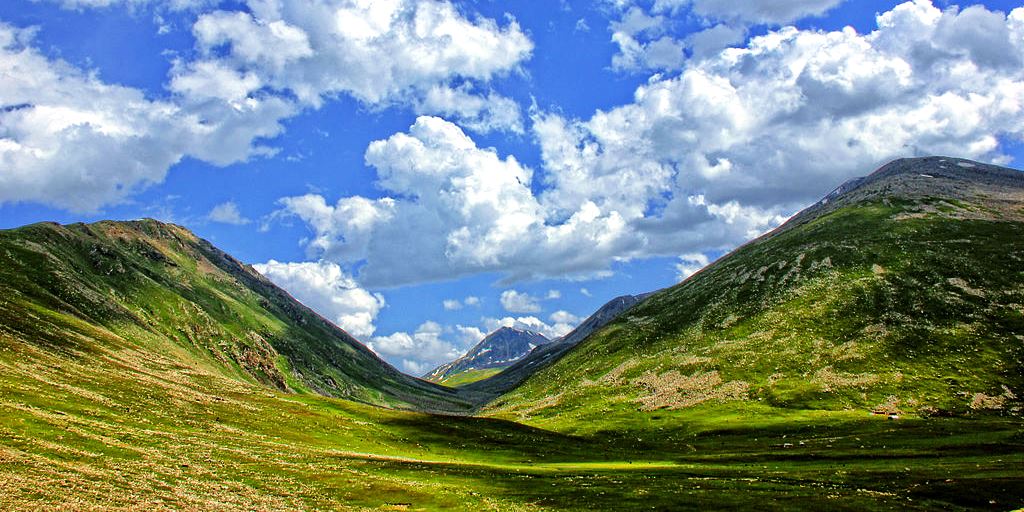
They grinned and waved back, shouting cheerful greetings. Every villager we met smiled warmly, replying to our salaam with a sincerity that melted away the fatigue of travel. There’s something about the people of these valleys — they live hard lives, yet their hearts are soft.
The further we went, the tougher the road became. “This track is getting rockier,” I called to Ali through our intercom. “How much farther?”
“Almost there,” he replied.
We watched in disbelief as a local family drove past us in a Corolla, slowly crawling over the stones. “Only locals can pull off something like that,” I laughed. “Not our cup of tea.”
The trail narrowed, hugging the mountain on one side and dropping sharply on the other. A local man on a small 125cc motorcycle passed us, his wife sitting calmly behind him. “Incredible,” I murmured. “These people ride fearlessly.”
At the Edge of the Road
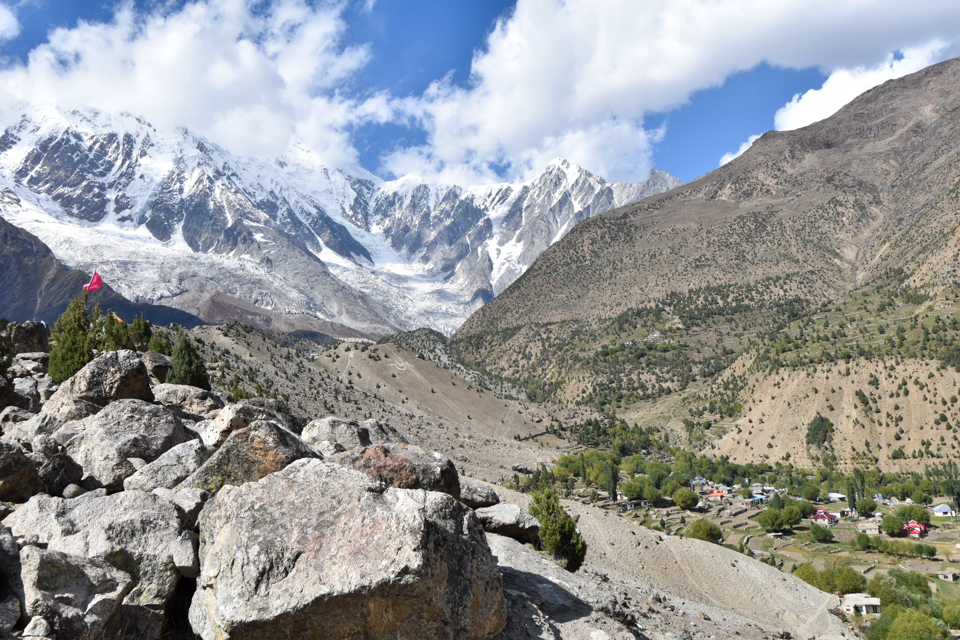
Finally, we reached the end of the motorable path — a small clearing dotted with tents and a few parked motorcycles. A young man emerged from one of the tents and waved.
“Assalam Alekum,” I greeted.
“Wa Alekum Salam,” he smiled. “You can park here. The hike to base camp starts from that ridge.”
“How long is the hike?” I asked.
“About an hour and twenty minutes,” he said. “Not too hard. You’ll love the view.”
We parked the bikes, secured our belongings, and began the hike on foot. The path wound through grassy slopes, crossed small streams, and climbed gently towards the heart of the valley. Behind us, the glacier glimmered faintly, and in front — even though the clouds refused to part — we knew Nanga Parbat was there, watching silently.
After about an hour, we reached a broad green meadow — the Rupal Base Camp.
At the Base Camp
It was like stepping into another world. The meadow stretched wide, dotted with colorful tents, surrounded by towering cliffs and glaciers. The air was pure and sharp, scented faintly of grass and melting snow.
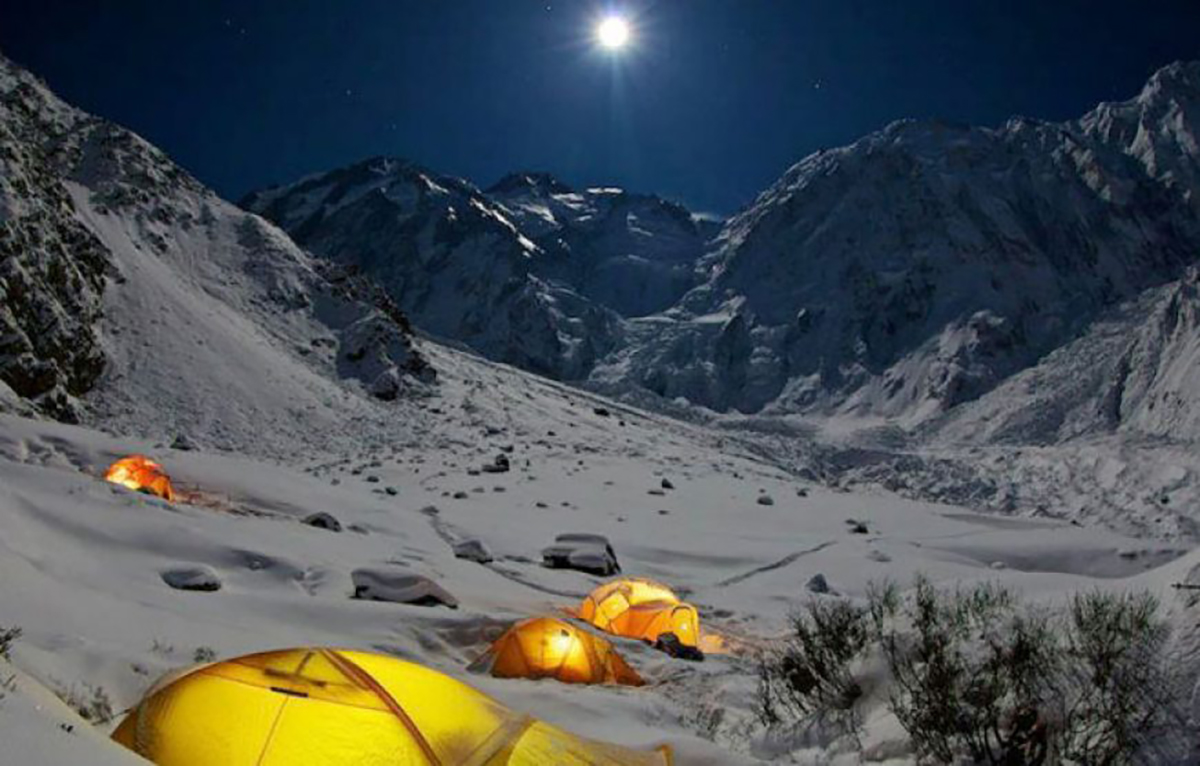
A young man named Waseem Akram welcomed us with a smile. “You’re the first visitors today,” he said proudly, serving us hot tea and crispy pakoras.
We sat on a patch of grass, the steam from our cups curling into the cold air. “You run this camp?” I asked him.
“Yes, sir,” he said. “Tourists come sometimes, but not too many. Maybe it will change now.”
His words struck a chord. Fairy Meadows — the more famous side of Nanga Parbat — attracts hundreds of visitors each day. It’s beautiful, yes, but crowded, noisy, and littered. Rupal, on the other hand, remained quiet, untouched, a secret whispered only among those who truly seek solitude.
“This place is special,” I said, gazing at the glacier and the cloud-shrouded peak. “For those who love peace, this is heaven.”
Ali nodded. “Absolutely. Pure tranquility.”
We sipped our tea, letting the silence of the mountains seep into us. Even cold pakoras tasted divine when paired with that view.
The Descent Back
After spending a couple of hours at the base camp, we began our descent. The road back was tricky, the gravel loose, the slopes sharp. I turned off the ABS on my bike — on these tracks, mechanical control often beats electronic assistance.
The sun began to peek through the clouds as we rode back. Waterfalls gushed down the slopes, glimmering in the sunlight. Streams crossed the road, splashing our boots. The valley seemed alive — full of sound and movement, like nature herself had awakened.
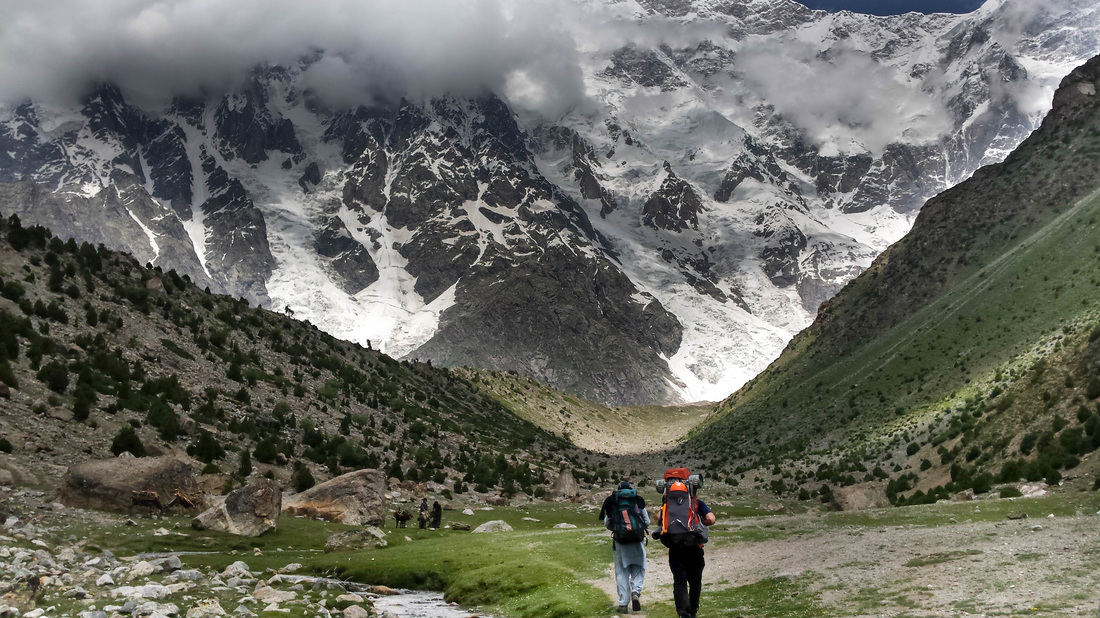
As we approached the main road again, the color of the river below caught my eye. It was no longer brown with sediment — instead, it shimmered a deep turquoise, clear and alive. “Look at that,” I said. “How pristine it is.”
We rode alongside the river, the sound of rushing water accompanying us like music. Every turn revealed a new scene — a broken wooden bridge hanging precariously over the water, a cluster of stone houses clinging to a hill, a waterfall bursting out from the rock face.
Lunch by the River
By noon, our stomachs reminded us it was time to eat. We stopped at a small roadside café near a village called Makial. A man waved us in warmly.
“Assalam Alekum. Can we get something to eat?” I asked.
“Yes, sir. We have lentils ready. Or if you’d like, we can make fresh trout.”
“How long for the trout?”
“Five minutes,” he replied confidently.
“Alright then,” I smiled. “Bring both — lentils and trout.”
As we waited, our friend Yasir arrived — flying in all the way from Medina just to join us for this leg of the journey. We sat together by the riverbank, chatting, laughing, listening to the water rush past.
When the food finally came, it was simple but perfect — golden fried trout, lentils, and fresh salad. The fish was soft and flavorful, caught right from the river beside us.
“This is one of the best meals I’ve had,” Yasir said.
I nodded in agreement. “The wait was worth it.”
The owner charged us PKR 1500 for 500 grams of trout — fair for such freshness. We thanked him and rode on, our hearts full and our spirits light.
Towards Chilam Chowki
The road ahead twisted through forests and valleys. This part of the journey was greener, denser. Trees lined both sides of the road, their leaves swaying in the mountain breeze. Every few kilometers, small villages appeared — some perched high on the cliffs, others nestled beside the river.
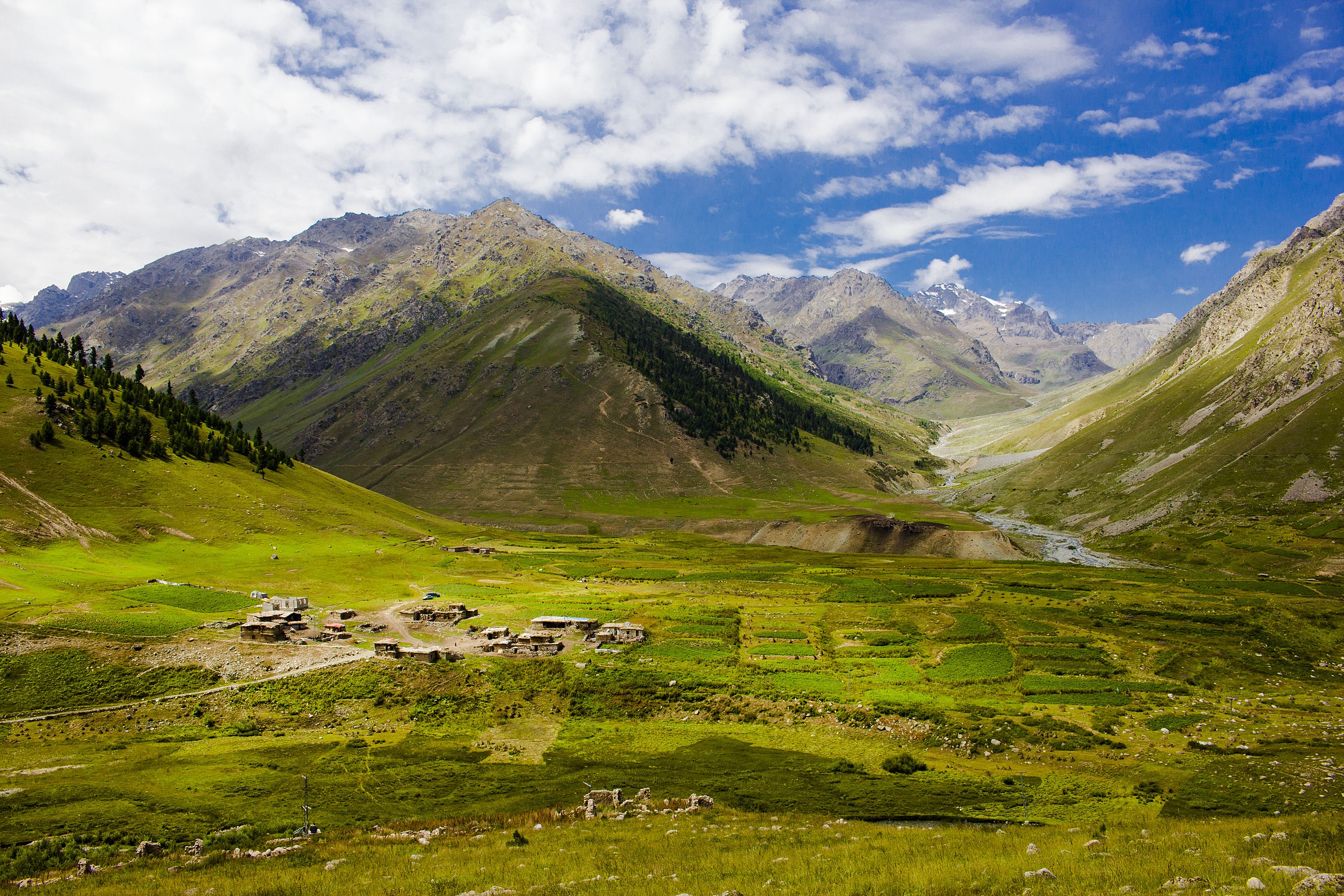
As we climbed higher, the clouds turned golden with the setting sun. The light danced over the peaks, casting long shadows that stretched across the valley. It was one of those moments where you simply stop talking and just watch.
By sunset, we reached Chilam Chowki — a remote junction point from where roads diverge towards Minimarg and the Deosai Plains. The air was colder here, sharper, carrying the scent of pine and snow.
Our plan had been to continue to Minimarg that day, but the fading light convinced us otherwise. “Let’s stay here tonight,” I said.
We found a small hotel — one of the few available in the area. The facilities were basic but clean: a double bed, an extra mattress, and a tidy washroom. The rent was PKR 5000, which seemed reasonable given the remoteness of the place.
As we settled in, I noticed a faint SCO signal on my phone. “At least we can send messages,” I said, smiling.
The night outside was silent — no traffic, no city lights, only the faint hum of the river and the soft whisper of wind. I stood by the window, looking out into the darkness, thinking about the day we had just lived.
From the winding roads of Tarishing to the icy breath of the Rupal Glacier, from sharing tea with strangers to dining by a turquoise river — it had been a journey that touched both heart and soul.
Reflections Beneath the Mountain
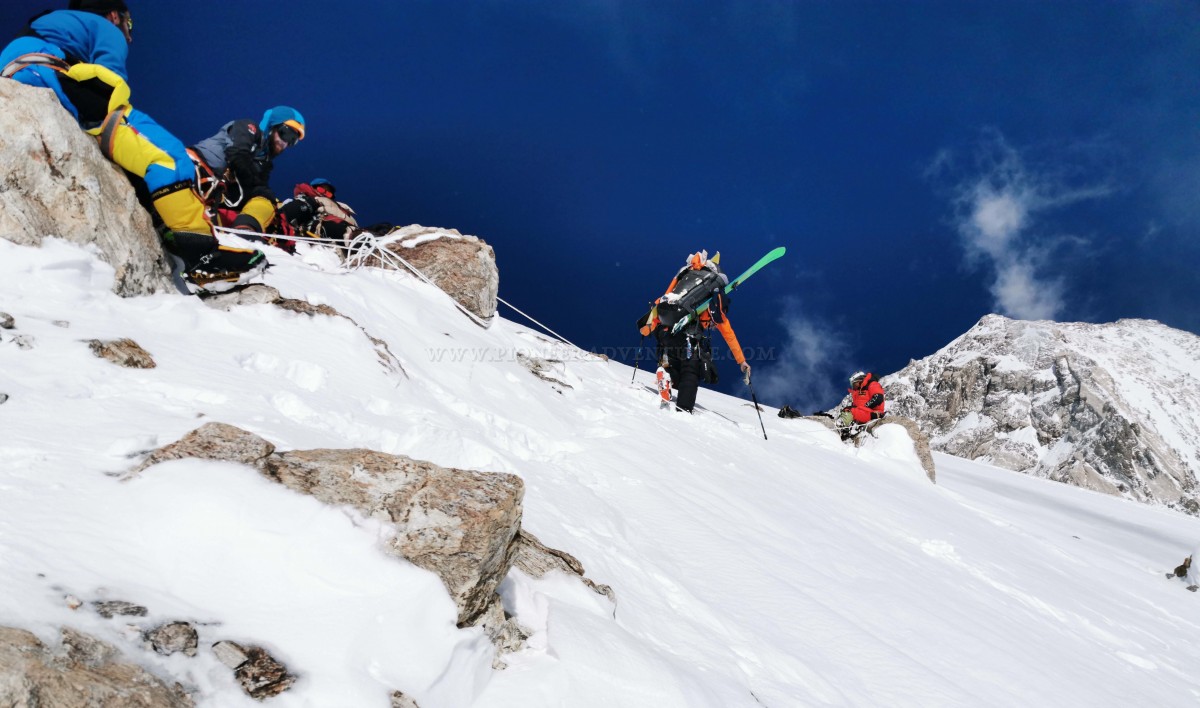
There’s something humbling about standing beneath an 8,000-meter giant like Nanga Parbat. It reminds you of your smallness — not insignificance, but perspective. You realize how little control you have, how everything — weather, road, even the next breath — is in the hands of something far greater.
That’s what travel in the north of Pakistan does to you. It breaks you open. It replaces the noise of your mind with the sound of wind and water. It replaces fear with awe.
As I closed my eyes that night in Chilam Chowki, I could still hear the roar of the river from the glacier, the laughter of children in Rupal, the clink of tea cups at the base camp.
Tomorrow, we would head towards Deosai — the Land of Giants — but tonight, I slept with gratitude. Gratitude for the road, the mountains, the people, and for the rare peace that only travel brings.








